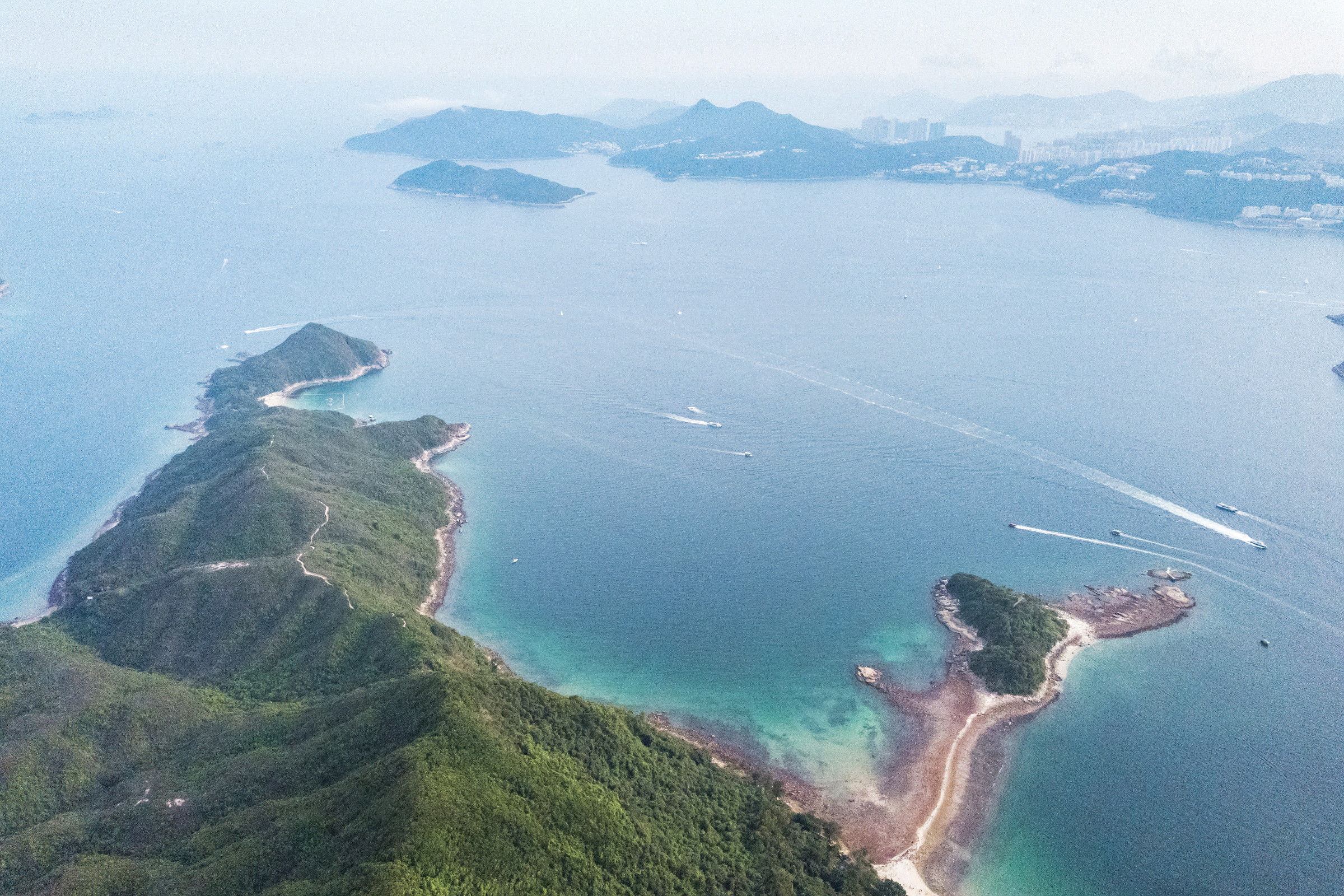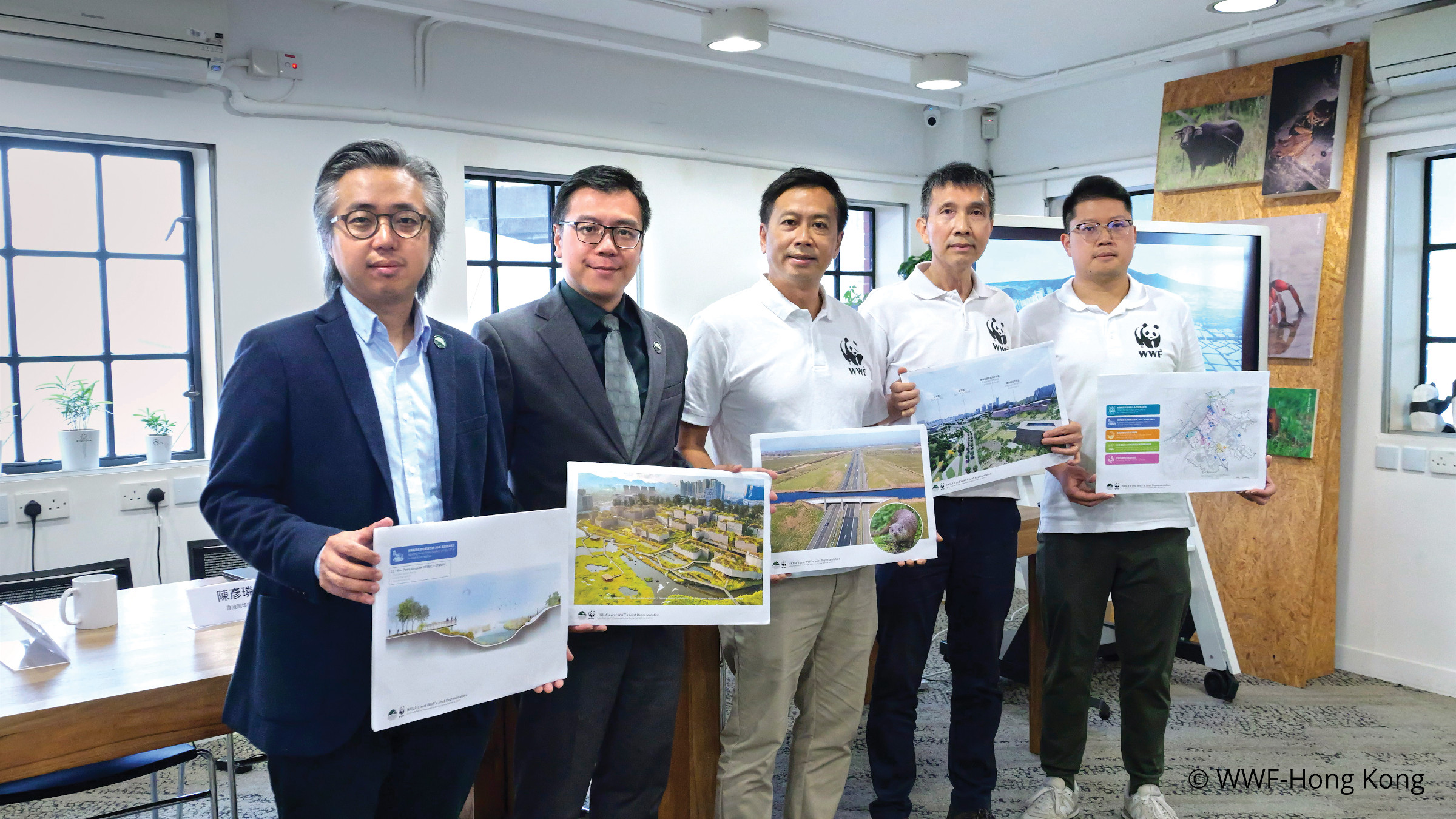WWF-Hong Kong believes that we can, and should, protect Hong Kong’s biodiversity for future generations through collective actions. This year, we continued our mission to advocate for local biodiversity conservation from different angles, including submitting key recommendations to the Chief Executive’s Policy Address. We also developed public engagement tools and strategies to promote Nature-based Solutions (NbS), helping people
understand the local and regional applications and benefits of NbS across the Greater Bay Area. We believe that healthy nature is a foundation of healthy society, leading to a sustainable city with a bright future.
WWF-Hong Kong is committed to helping Hong Kong become a nature-positive city. In pursuit of this goal, we presented a comprehensive set of recommendations for the Chief Executive’s 2024 Policy Address, focusing on several critical environmental issues and emphasising the importance of a holistic conservation strategy.
In terms of wetland conservation, we highlighted that a healthy natural environment is the foundation of societal development. While acknowledging the importance of developable land in meeting targets of housing demand and economic growth, we emphasised that preserving the ecological integrity of Hong Kong’s wetlands is also extremely important. We urged the government to develop a holistic Wetland Conservation Strategy to establish a clear path for the protection and management of key coastal and inland wetlands. To conserve some of our most threatened species, it is also critical to strengthen cooperation with conservation authorities of the region, and formulate a new Hong Kong Biodiversity Strategy and Action Plan aligned with national and global frameworks. We stressed that adequate resources should be allocated to environmental initiatives to ensure a balance between development and conservation.
To protect Hong Kong’s biodiversity-rich landscapes while promoting sustainable tourism in areas like South Lantau and Yan Chau Tong Marine Park, we urged the government to implement comprehensive ecotourism planning. We also proposed establishing an independent conservation trust through public-private partnerships that will conserve, and even enhance ecologically significant private lands, while the rights of the landowners are respected via allowing development in parts of their lands of lower or no ecological value. This approach seeks to balance landowner interests with the conservation of privately-owned ecological hotspots, ensuring long-term protection for Hong Kong’s natural heritage.
In the marine sector, we highlighted that adopting Marine Spatial Planning will help Hong Kong to scientifically plan marine uses, and cautioned against launching major reclamation projects, including the Kau Yi Chau Artificial Islands proposal, until a robust framework is in place. We also suggested leveraging innovative technologies to develop long-term strategies to combat the recurring issue of illegal wildlife trade in Hong Kong.
We recommended establishing consumption targets on sustainable aviation fuel for all airlines departing Hong Kong, and supported integrating local blending and smart technology in long-term plans for green maritime fuel, all of which will ensure a sustainable transition for both the aviation and shipping sectors.

Port Shelter is one of WWF’s recommended marine protection areas in Hong Kong
The development of the San Tin Technopole (STT) will severely jeopardise the ecology of Deep Bay Wetland ecosystem and impact climate resilience in the GBA. In June 2024, we collaborated with the Hong Kong Institute of Landscape Architects to propose five recommendations to the Town Planning Board regarding the STT Outline Zoning Plan.
These recommendations aim to create a liveable city by minimising ecological impacts and adopting NbS to climate change challenges:

(From left) Representatives from HKILA and WWF-Hong Kong at the STT joint press conference on 27 June 2024